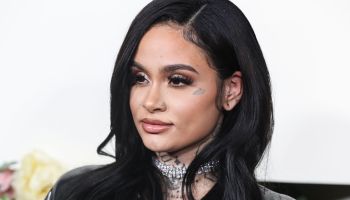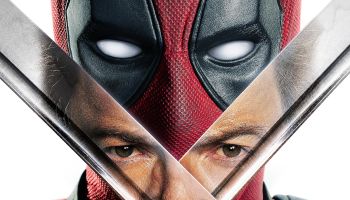Can’t we all just get along? Rodney King uttered those famous words in 1992 when it was clear America still had a big race relations problem. Fast forward 19 years and we’re witnessing some Black on Black hate that could get pretty ugly. Spike Lee has been throwing jabs at Tyler Perry for the last couple of years, but most recently the “Do the Right Thing” filmmaker’s criticism has gotten under Perry’s skin. With the upcoming release of Perry’s latest installment in the Madea series, “Madea’s Big Happy Family,” the Atlanta-based director/producer/writer/actor responded to Lee’s claim that his films and TV shows promote “cooning and buffoonery.”
“I’m so sick of hearing about damn Spike Lee. Spike can go straight to hell! You can print that,” Perry said during a press conference for his new film. “I am sick of him talking about me, I am sick of him saying, ‘This is a coon, this is a buffoon.’ I am sick of him talking about Black people going to see movies. This is what he said: ‘You vote by what you see,’ as if Black people don’t know what they want to see…”
[pagebreak]
Perry raises an interesting point. Is it fair for Lee to assume that the millions of African-Americans that race to see his films don’t know what they like? Are we positively certain that Perry’s characters don’t deserve to be represented? Is it fair to proclaim that the characters in Perry’s films don’t actually exist in real life and if they do, then is Perry promoting buffoonery or simply making films for his people?
Another issue worth addressing, is whether it’s fair for Lee to put the burden of black films and television on Perry’s shoulders without taking into consideration that there’s a market for different types of Black films because, well, the reality is … there are different communities of Black people. Does this make Lee an elitist? Should only one type of lifestyle be shown? Some would argue that the real issue is whether Perry has a responsibility to highlight more than one facet of African-American culture. Is there room in Tyler’s studio for Madea and “Meet the Browns” as well as a modern day “Different World” – a show that highlighted African-Americans in college or a new “Cosby Show” – which proudly showcased a black family, where the mom was a lawyer and the father, an obstetrician?
[pagebreak]
Well, Perry points out that other races and cultures are rarely, if ever, criticized for perpetuating stereotypes.
“I’ve never seen Jewish people attack Seinfeld and say ‘this is a stereotype,’ I’ve never seen Italian people attack ‘The Sopranos,’ I’ve never seen Jewish people complaining about ‘Mrs. Doubtfire’ or Dustin Hoffman in ‘Tootsie.’ I never saw it. It’s always black people, and this is something that I cannot undo,” Perry continued.
Tyler Perry’s supporters offer up a number of reasons why critics are barking up the wrong tree. One defense, is that Perry is not the first person to put on a dress and poke fun at the Black matriarch. Comedian/actor Martin Lawrence – who got his start in film in Spike Lee’s “Do the Right Thing” — recently reprised his role as “Big Momma” in the film “Big Mommas: Like Father, Like Son.” Lawrence would poke fun at black women long before Perry, on his show “Martin.” Lawrence played a number of characters on the ‘90s comedy, one being Sheneneh Jenkins, a flashy, “ghetto-girl.” Lawrence was never called out for portraying this Detroit ghetto-girl, who had a crush on the protagonist but no chance of dating him because he was dating – and would eventually marry – his girlfriend Gina Waters, a successful business-woman. Let’s not forget about “In Living Color”’s character Wanda – an unfortunately unattractive black woman, played by Academy Award winner Jamie Foxx during the show’s four year run in the ‘90s.
[pagebreak]
“Martin” and “In Living Color” are still the most celebrated African-American sitcoms of the ‘90s and many long for the days when Black people are represented on a wider scale. But until then, Perry is holding down the fort and keeping Black actors employed.
It doesn’t look like Lee and Perry will bury the hatchet anytime soon, but one thing is for sure. Whether Lee likes it or not, Tyler Perry’s production company has given jobs to thousands of African-Americans, from the actors and actresses he continues to support to the people behind the scenes, cameramen, grippers, editors, etc., contributing to Atlanta’s economy. We’ll be sure to follow this beef closely. To be continued.
















